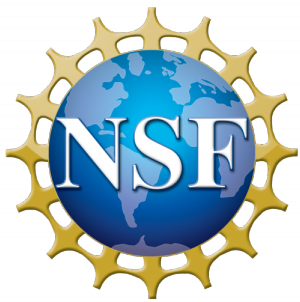September 22nd, 2021 | RESEARCH
An individual's sense of themselves as a “STEM person” is largely formed through recognition feedback. Unfortunately, for many minoritized individuals who engage in STEM (science, technology, engineering, and mathematics) in formal and informal spaces, this recognition often adheres to long-standing exclusionary expectations of what STEM participation entails and institutionalized stereotypes of what it means to be a STEM person. However, caregivers, who necessarily share cultural backgrounds, norms, and values with their children, can play an important role in recognizing their children's interest and inclination towards STEM in ways that support children's authoring of their STEM identity in the face of these marginalizing discourses. To explore this idea, we conducted phenomenological interviews with STEM students attending a Hispanic-serving university, examining the nature of STEM-related conversations these students had with their parents during childhood. Participant recollections provide evidence of conversational content, contexts, and structures that supported their identification with STEM even when faced with marginalizing experiences. We found that though this phenomenon was recounted across parent profiles, participant narratives also reflected differences in conversation content, context, and structure based on factors associated with STEM stereotypes, including gender, formal education or training in STEM, and parents' immigration experiences. Viewed within larger sociocultural discourses of whose knowledge “counts” in STEM, our work suggests the need for educational institutions to acknowledge and embrace families' ability to foster youths' affinity with STEM contexts, while also recognizing and responding to institutionalized impediments to authentic STEM participation.
For more information please contact the corresponding author, Dr. Heidi Cian (hcian@fiu.edu).
Document
(no document provided)
Team Members
Heidi Cian, Author, Florida International UniversityRemy Dou, Author
Sheila Castro, Author
Elizabeth Palma-D'souza, Author
Alexandra Martinez, Author
Citation
Identifier Type: doi
Identifier: https://doi.org/10.1002/sce.21688
Publication: Science Education
Page(s): 1-31
Funders
Funding Source: NSF
Funding Program: CAREER-AISL
Award Number: 1846167
Related URLs
CAREER Award: Talking Science: Early STEM Identity Formation Through Everyday Science Talk
https://onlinelibrary.wiley.com/doi/abs/10.1002/sce.21688
Tags
Access and Inclusion: Ethnic | Racial | Hispanic | Latinx Communities | Immigrant Communities | Women and Girls
Audience: Elementary School Children (6-10) | Families | Learning Researchers | Middle School Children (11-13) | Parents | Caregivers | Undergraduate | Graduate Students
Discipline: Education and learning science | General STEM
Resource Type: Peer-reviewed article | Research Products
Environment Type: Higher Education Programs | Informal | Formal Connections

